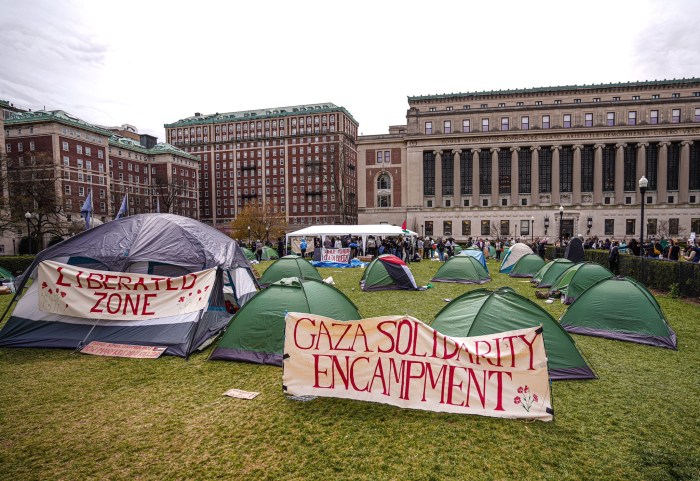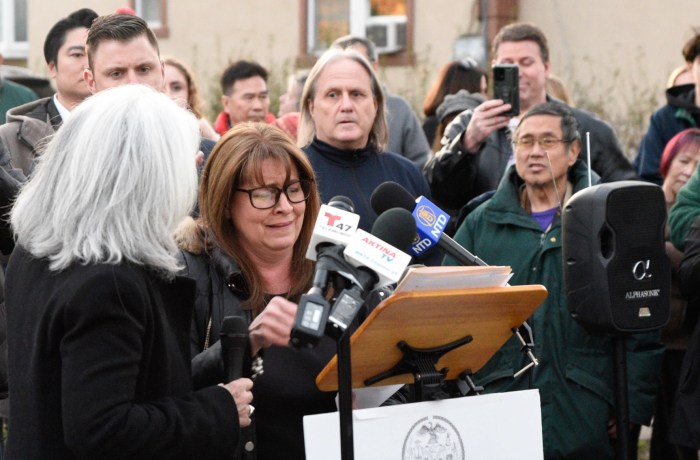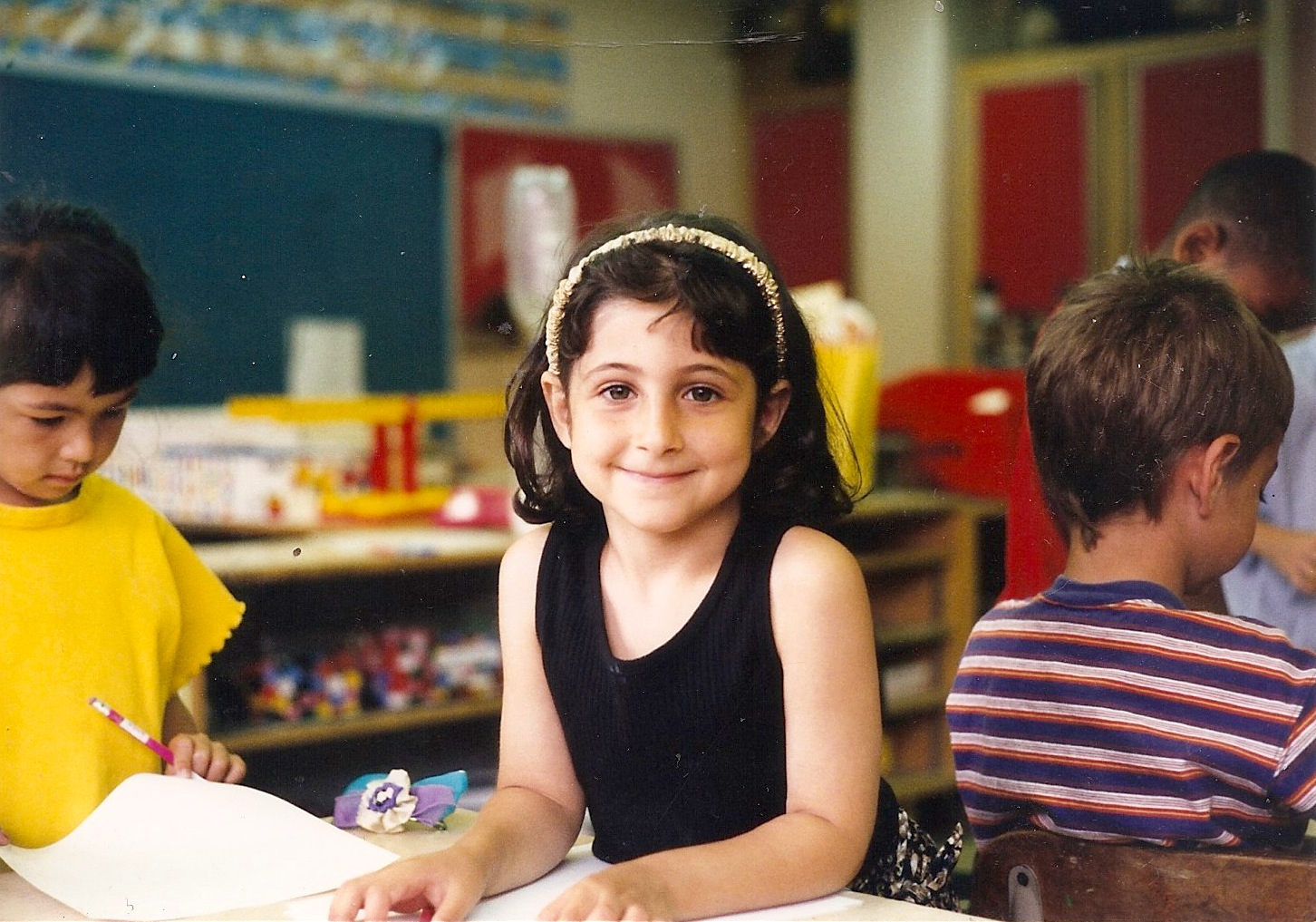
Helaina Hovitz, seen here as a first-grader at the Early Childhood Center (now PS 150), enjoyed a downright idillic life in the years before the trauma of 9/11 changed it forever.
BY YANNIC RACK
Helaina Hovitz was starting her second day of seventh grade when the first plane struck the World Trade center on Sept. 11, 2001.
Mere blocks away at IS 89, she was rushed out of science class along with her classmates and, together with a friend and her friend’s mother, tried desperately to find their way home to Southbridge Towers amid the unfolding chaos and destruction.
“We got outside and we saw the towers on fire, we could feel the heat on our faces. Everyone was stopped dead in the street, looking up,” remembered Hovitz, who was 12 years old at the time. “We could hear the sound of bodies hitting cars.”
That horrific day scarred her deeply, of course, and those scars are still healing nearly 15 years later.
“All that was going through my mind was, ‘We’re all going to die.’ I didn’t know what was happening, I thought I would never see my parents again,” she recalled. “We were in the middle of it all from start to finish.”
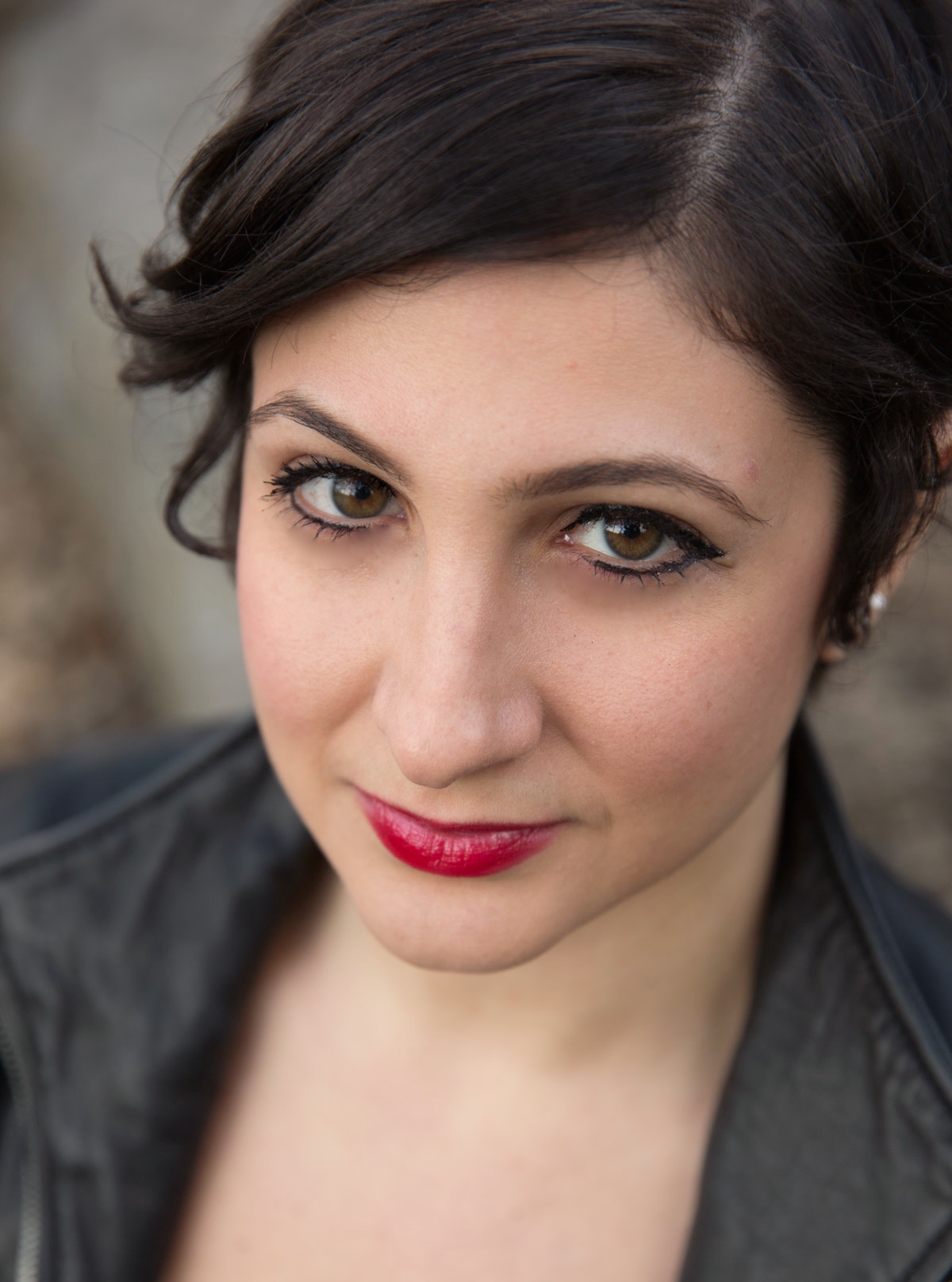
Author Helaina Hovitz finally feels like she has recovered from the trauma of Sept. 11, and her memoir chronicling how she rebuilt her life comes out this summer, 15 years after the attacks.
Hovitz’s experience of that traumatic day, and her later efforts to deal with it — for good and ill — are documented in her new memoir, “After 9/11: One Girl’s Journey Through Darkness to a New Beginning.”
The book follows not only Hovitz’s own story as she struggled for years with undiagnosed Post-Traumatic Stress Disorder, but also the experiences of her fellow classmates and other Downtown children who were first-hand witnesses of the horrors of 9/11. The book is set to come out this summer, but Hovitz has been working on it for the past five years.
“I spoke with sixteen other kids on the ten-year anniversary, to see how they were doing, and then I circled back with a smaller group of them last fall,” said Hovitz, who is now 26 and was once a contributor to Downtown Express. “It’s my story, but it’s certainly also the story of many of the kids who were in IS 89, kids at PS 234 — kids who I think had very similar experiences.”
In the days after the attacks, Hovitz said the constant warnings of more buildings collapsing and the prolonged cleanup in the neighborhood made her increasingly anxious — and the trauma didn’t end after she went back to school two weeks later. She suffered panic attacks, nightmares and painful flashbacks that made her relive the day’s trauma over and over again.
“There was threat after threat after threat — and there I am, a 12-year-old who can’t even process all this,” she said. “You’re scared when a family member leaves the house, because you’re scared they’re not going to come back.”
Despite what people kept telling her, the passage of time didn’t seem to help. The problems were still there in high school, where Hovitz spiraled into depression, and began drinking.
“Things began to get really bad. It’s when the more complex symptoms — of fear of abandonment, of hyper-emotional responses, high reactivity, difficulty trusting people — began. Even taking the subway every day was like a horror show,” Hovitz said.
Her drinking eventually turned to alcoholism even before she graduated, as she bounced from school to school throughout her teenage years, ditching one therapist after another in the hope of finding out what had gone wrong with her.
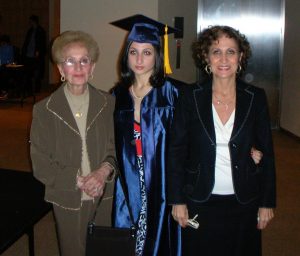
Hovitz, flanked by her mother and grandmother, graduated high school at age 17, despite spiraling into depression and alcoholism due to her still-undiagnosed post-traumatic stress disorder.
“Over my high school years, I was constantly going from therapist to psychiatrist, just asking, ‘Please, somebody help me, somebody fix this.’ It’s like living your whole life through a lens of fear and panic,” she said.
After years of misdiagnoses, including ADHD and bipolar disorder, and medications that either didn’t work or made her sick, Hovitz finally found help in the form of cognitive behavioral therapy, a treatment that has shown promise helping troubled veterans returning from intense combat.
Then, six years ago, her eighth therapist gave her the PTSD diagnosis that changed her life.
“She said, ‘I know where all this started,’” Hovitz said. “It took me eight years to really start to understand what happened to me. That’s when I really began to recover.”
After finally getting on the right track to healing, she started researching trauma in young adults and eventually reached out to her former classmates at IS 89 and other Downtown schools.
“I heard things that could have just been ripped from my own story — ‘I felt like everyone wanted to hurt me,’ ‘I isolated myself from everyone,’ ‘I couldn’t turn off the mental chatter in my head,’ ‘I couldn’t stop drinking.’ It was unbelievable,” Hovitz said of her conversations with fellow young survivors. “And almost none of them had a diagnosis of PTSD either.”
The book follows Hovitz from her pleasant early childhood — to show the stark contrast to her life after 9/11 — right through a few months ago.
She also chronicles the fate of other survivors, including a young man named Thomas who now lives in Florida, and whose story Hovitz said was among the most horrific anyone will hear about a child during 9/11.
“We find out what happens to the kids you care about in the book, you’ll find out where they ended up,” Hovitz said.
Her own recovery entered its last chapter when she got sober around four years ago, which she describes as the final piece of her personal puzzle.
Instead of smoking and drinking, Hovitz now does meditation and yoga — and even turned her new-found focus on positivity into a business, starting the digital news service ‘Headlines for the Hopeful,’ which only reports on good news and efforts to make the world a better place.
“I’ve become someone who, instead of living in fear and panic, has found peace and happiness in life,” said Hovitz, who continues to work as a freelance journalist. “I kind of made it my mission to bring positive and hopeful stories to the world, and that’s where this new website that I’ve co-founded comes in.”
She also points out that her book is more than a memoir, as it is intended to raise awareness for children struggling in ways similar to Hovitz, and let them know there is hope for a better life.
“There’s a lot of awareness we still need for people, and kids, who are living with PTSD and don’t know it,” she explained. “The earlier you can intervene, the better — that’s really what I’m trying to put out there. We have to follow up with these kids. It’s different when you’re a little kid and the world is supposed to be a safe place.”
Hovitz still lives in Lower Manhattan, and has seen it rebuild just as she has rebuilt herself. But she said she’s in no hurry to go up to the observatory in the newly rebuilt 1 WTC, also known as the Freedom Tower.
“I don’t like seeing the Freedom Tower, it’s tall and it’s scary. I have no desire to go in there,” she said, although adding that she wouldn’t rule out ever getting over that last fear.
“Never say never.”
“After 9/11” is available for pre-order now at Amazon and Barnes & Noble. The e-book will be released on Aug. 16, with a hardcover edition following on Sept. 6.











